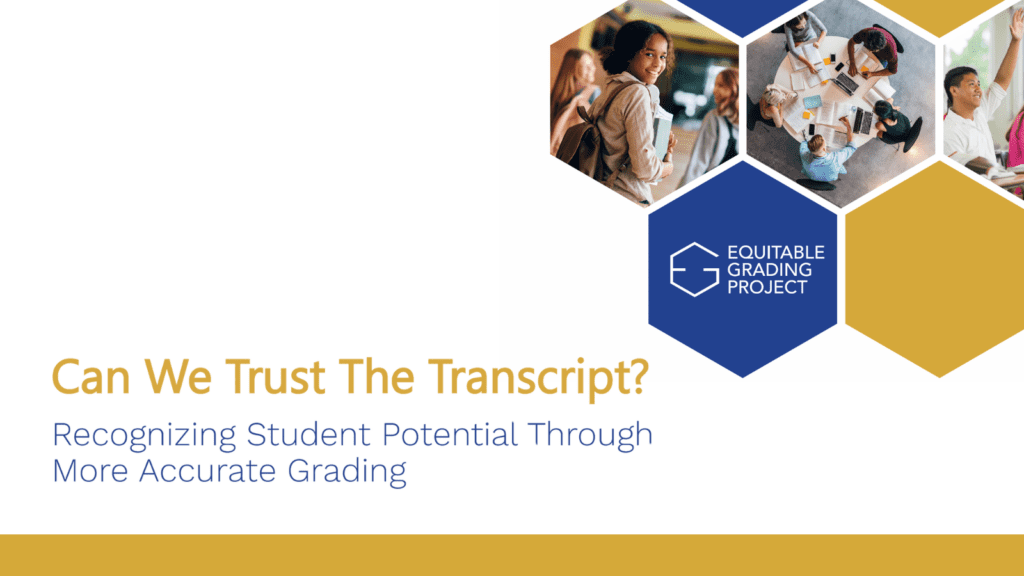“Each year, millions of high school students are receiving grades that don’t represent what they actually know and have learned . . . Yet, they are presented as the truth and set expectations about what that student can accomplish. Those grades get sent home to parents. They are shared with other educators and school leaders. They get rolled up with other grades – which may also be inaccurate – on transcripts and turned into a grade point average that is then shared as part of college applications.”
– Guadalupe Guerrero, CEO of the Partnership for Los Angeles Schools and Former Superintendent, Portland Public Schools
“Everything in education has changed, except the way we grade.”
– Dr. Jeffrey Tooker, Superintendent, Placer Union High School District
Student grades play an important role in K-12 education, often determining the courses and after-school programs students take and the colleges they get into. So, if students are to realize their potential, grades need to be accurate. They must reflect what students actually know and signal their readiness for advanced coursework or need for additional support.
Unfortunately, as demonstrated by the findings of the Equitable Grading Project’s study of over 33,000 middle school and high school grades, most student grades are not accurate. In fact, nearly 60% of the grades in the study didn’t accurately recognize student understanding of course content. There is good news, however, as the study also found that the implementation of improved grading practices led to both increases to grading accuracy and a reduction in the number of D’s and F’s students receive.
The new whitepaper “Can We Trust the Transcript? Recognizing Student Potential Through More Accurate Grading,” authored by Joe Feldman, the Equitable Grading Project’s president and the author of Grading for Equity, presents the findings of this landmark research, while also exploring inaccuracies in existing grading practices and ways they can be improved. Featuring a foreword by Guadalupe Guerrero, CEO of the Partnership for Los Angeles Schools and Former Superintendent, Portland Public Schools, and insights from leaders from K-12 and higher education, the report presents the need for a new approach to grading that accurately recognizes what students know and what they can accomplish.

